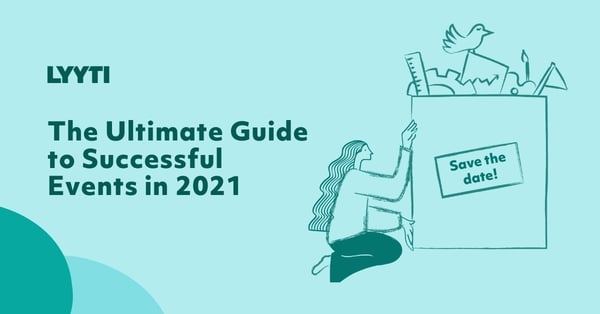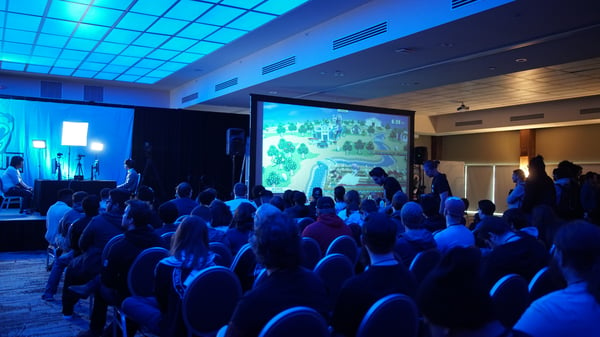Everyone who works with events can recognise the frustration of not being able to measure and prove their success accurately. Sure, we've all heard of event ROI, and it's common for many companies to use this metric to calculate what the organiser has received in return for their event. Still, there's no standardised way of measuring ROI, and this metric only answers half of the question. To this day, the common assumption is that every event is unique, and thus there can be no common nominator for measuring event success. In this blog post, we discuss the factors that affect event measurability and offer an entirely new perspective on the topic.
Time is event currency
What does every event have in common? They all need participants. Without the participant, there can be no event. Through powerful and seductive marketing, the event organiser aims to persuade their target audience of the fact that the event will be worth their investment. What investment is that? Well, in all its simplicity, their time. Time is event currency, and it's something every organiser fights for.
Was it worth it?
The diligent promotion paid off, and the participant did join. What happens next? Now it's time for the organiser to measure the success of the event; calculate the value it provided to that one participant. How do they do that? They ask them. So, the organiser sends out detailed surveys where they ask about the catering and the music and the speakers and crosses their fingers that a decent amount of people will take – again – time, to give their feedback. Will they now be able to measure the value the event provided or the real success of it? Not really.
When it comes to asking for feedback, in addition to time, the timing is everything. Usually, these mile-long surveys are sent out a few days or even weeks after the event, and the response rate is often low. Why? Because the feelings and sensations (if there ever were any) have already faded away. Also, the type of questions that we pose in these surveys generally aim to find out if the participants were satisfied. The problem here is that satisfaction is a very subjective concept, and thus questions and answers alike are open to various interpretations. These surveys don't answer the questions "was my event a success?"; "did it have an impact on my participants?"; "was it worth their time?" and that's what we'd need them to do.
We ask, would it be possible to prove the success of an event with one single question and one numeric value? We also have an answer to that, and that answer is yes.

Introducing the new North Star Metric for measuring event success
Following the discussions above, it's become quite clear that we've established the common nominator for measuring event success. That nominator is the participant, the time they invest in the event, and the value they believe they've gained in relation to that time. It essentially comes down to measuring opportunity cost.
Lyyti has created an automated tool for measuring the experienced value of your event, and we call it the Experience Value Score (EVS). This tool allows you to collect immediate feedback from your participants without having to compile and send out detailed surveys. By answering one generic question, your participants can tell you if they believe your event was worth their time or not.
With the EVS, you'll have one score telling you and your organisation how your event has succeeded. In addition to that, you can follow the average score of the industry and use it for comparison. You'll now have the possibility to actually measure the effectiveness of your events and continuously improve your event activities.
We'll be launching this new feature in November, so stay tuned! In the mean time, take a look at our Event Marketing Playbook, with top of the notch ingredients for making your events successful.









